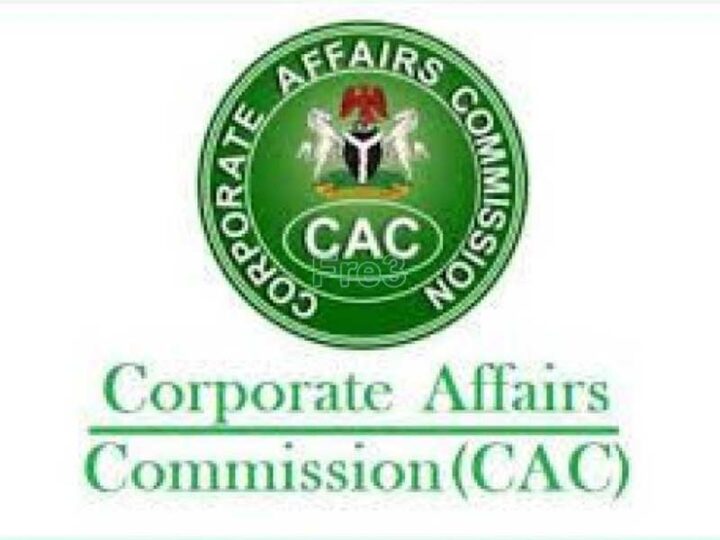The Corporate Affairs Commission (CAC) has uncovered 247 companies allegedly operating with fake or invalid registration numbers, raising fresh concerns about fraudulent practices within Nigeria’s business environment. The revelation, made public during a regulatory enforcement briefing in Abuja, highlights the Commission’s increasing use of technology to monitor and verify corporate compliance across the country.
Registrar-General of the CAC, Hussaini Ishaq Magaji, said the fraudulent practices came to light after an extensive digital audit of the Commission’s database, where inconsistencies in the use of registration certificates were detected. He explained that the companies were flagged for presenting false registration credentials while conducting business transactions, including bidding for contracts, opening bank accounts, and engaging with regulatory agencies.

Magaji noted that such fraudulent activities undermine the credibility of Nigeria’s business landscape and erode trust among legitimate investors. According to him, the discovery forms part of CAC’s broader reforms to clean up the corporate registry and enhance transparency in line with international best practices.
“These 247 entities were found to be parading fake RC numbers, thereby misleading the public and institutions that rely on CAC certification as proof of legitimacy,” Magaji stated. “We have commenced enforcement actions, which may include prosecution, blacklisting, and collaboration with other agencies to ensure that perpetrators are brought to justice.”
The CAC boss emphasised that the Commission is working closely with security agencies, including the Economic and Financial Crimes Commission (EFCC) and the Nigeria Police, to clamp down on fraudulent companies. He assured that a joint task force is already profiling the affected firms, with a view to prosecuting their promoters.
To forestall future infractions, Magaji explained that the Commission has intensified public sensitisation campaigns to educate stakeholders on how to verify company details through its official online portal. He encouraged Nigerians, especially government agencies and financial institutions, to validate RC numbers before entering into business transactions with any firm.
The revelation has drawn attention from industry watchers who note that fraudulent registration practices pose serious risks to the Nigerian economy, particularly in areas such as procurement, banking, and foreign investment. Analysts argue that the discovery of 247 fake companies underscores the need for stronger due diligence processes in both the public and private sectors.
In response to the development, the Nigerian Association of Chambers of Commerce, Industry, Mines and Agriculture (NACCIMA) commended the CAC for its proactive measures, describing the move as a bold step toward sanitising the corporate environment. The association urged businesses to embrace transparency and warned that illegal practices not only carry legal consequences but also damage reputations.
The Commission’s findings come at a time when Nigeria is working to attract greater foreign direct investment (FDI) and improve its ease of doing business ranking. International investors often rely heavily on regulatory agencies like the CAC to validate corporate entities before committing capital. Analysts believe that the elimination of fraudulent companies will strengthen Nigeria’s investment climate by improving trust in corporate governance structures.
Magaji also reiterated that the CAC has embarked on a robust digitalisation process to ensure greater efficiency in company registration and monitoring. He said the newly upgraded Beneficial Ownership Register and the electronic filing system will significantly enhance accountability and help regulators identify individuals hiding behind shell companies to commit fraud.
The Commission urged members of the public to report suspicious companies or irregularities in RC numbers through its official complaint channels. Magaji stressed that citizen participation is crucial in combating corporate fraud and safeguarding Nigeria’s business integrity.
Meanwhile, the EFCC has vowed to collaborate fully with the CAC in investigating the promoters of the fraudulent companies. According to EFCC officials, some of the identified firms may have been involved in money laundering, contract fraud, and other financial crimes. The anti-graft agency assured that no stone will be left unturned in ensuring that offenders face appropriate sanctions.
Legal experts say that under the Companies and Allied Matters Act (CAMA) 2020, the use of false or misleading company registration documents constitutes a criminal offence that can attract severe penalties, including imprisonment. They advise that beyond criminal prosecution, the government must strengthen monitoring systems to detect anomalies in real time.
Observers also believe that the CAC’s discovery underscores the importance of inter-agency collaboration. They argue that fraudsters often exploit loopholes between government institutions to operate undetected. A harmonised digital framework, they suggest, would go a long way in addressing such gaps.
As enforcement continues, businesses across Nigeria have been urged to ensure full compliance with registration requirements and maintain updated records with the Commission. Magaji concluded by assuring that the CAC remains committed to upholding integrity, transparency, and accountability in the corporate registry.
“The days of cutting corners are over,” he said. “We will not relent in cleaning up the registry and restoring the confidence of Nigerians and the international community in our business environment.”
With the clampdown on fraudulent companies gaining momentum, stakeholders say the development sends a strong signal to dishonest actors that the regulatory system is becoming increasingly vigilant. The Commission’s actions are expected to enhance Nigeria’s credibility in the global market while providing a safer business ecosystem for legitimate investors and entrepreneurs.
Support InfoStride News' Credible Journalism: Only credible journalism can guarantee a fair, accountable and transparent society, including democracy and government. It involves a lot of efforts and money. We need your support. Click here to Donate
